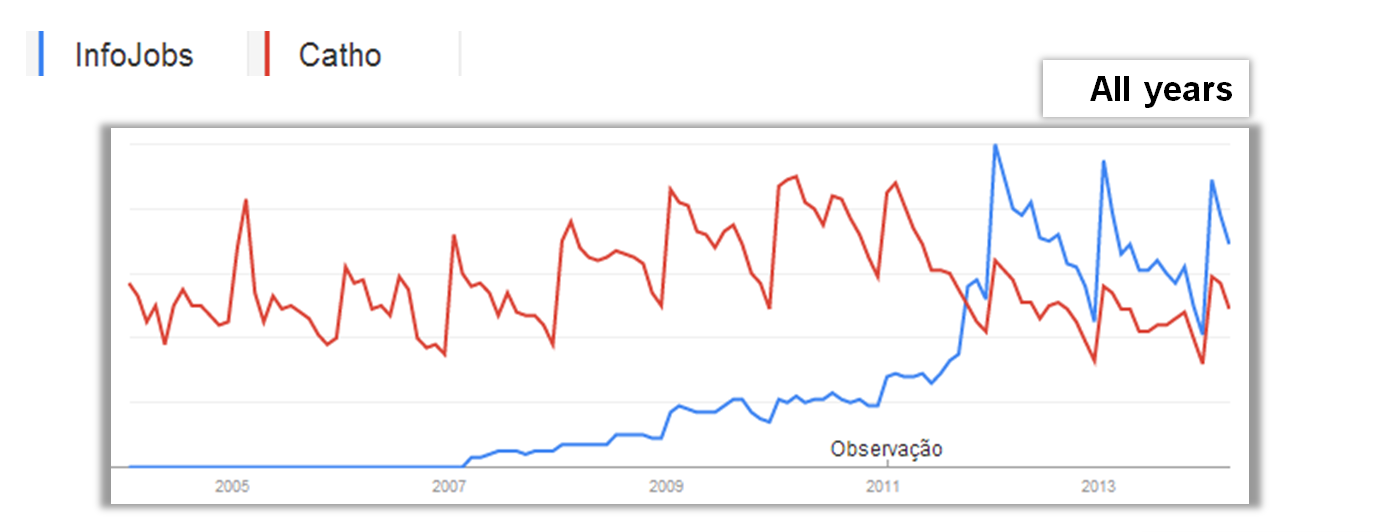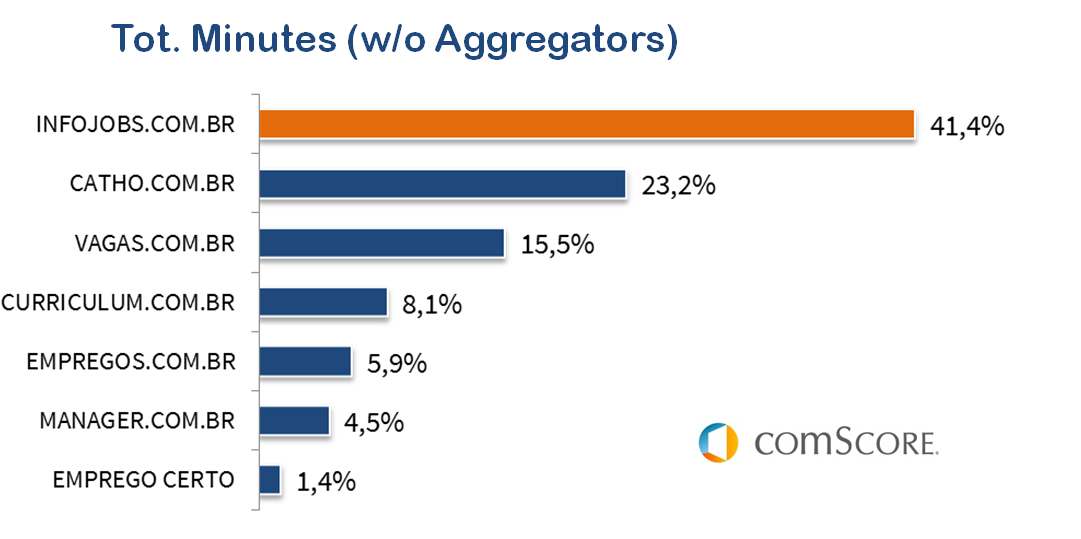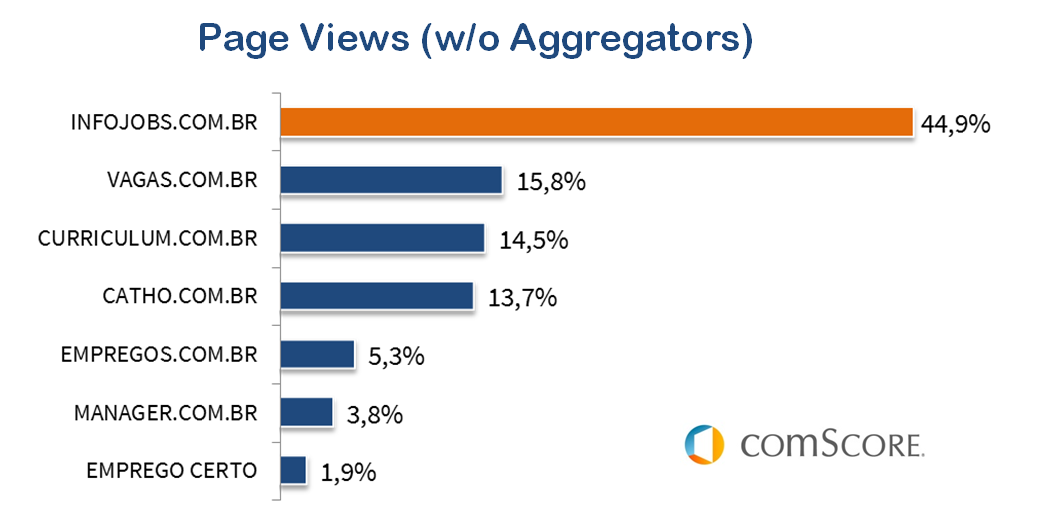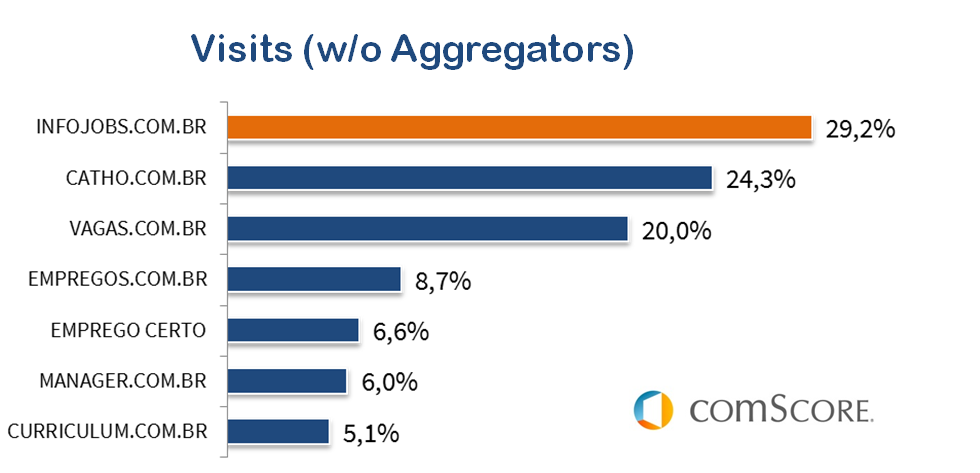
I believe that when a project goes wrong it’s important to study the reasons so we can learn from our errors and improve. But I also believe that when things go right it’s good to analyze and understand the keys that led you to success. And that's what I would like to share today.
When you start a project like InfoJobs in the 5th largest country in the world, you wonder if the people who tell you it will not work are right. The truth is that sometimes intuition does work and sometimes it doesn’t. It’s not infallible. But one thing I’m sure about is that you never, never, never know how a business that just started will work out. That's something I always keep in mind. Even if everything is under control, there can always be things that are beyond your initial calculations, and you have to base your decisions on the information you have at that moment.
We launched Infoemprego.com.br in 2004 and changed the name of the site to Infojobs.com.br when we purchased InfoJobs in Spain and Italy. Everything seemed very difficult when we started in Brazil in 2004. A lot of people reminded me that the market was very mature with a clear leader and that it would be impossible to steal first place. But the truth is that there were some signs that made me see an opportunity. Allow me to explain the state of the employment websites in Brazil in 2004 and the keys to InfoJobs’ good evolution.
- The two market leaders at that time, Catho.com.br and Vagas.com.br, were encumbered by the fact that they weren’t born as online businesses.
- Furthermore, Catho started as a human resources company that later turned into a jobs website.
- Catho’s business model charged almost all candidates for registration, and still continues to do so today. In general, sites who charge users are very profitable, but they are also very vulnerable to competitors.
- Vagas started as a human resources computer tool for large companies and was transformed into a jobs website. Their weakness was that they had few companies, but large ones.
Now let’s take into consideration InfoJobs’ strengths:
- InfoJobs Brazil came into the market with a proactive business model. Among other things, at its launch, the website was the most developed and user-friendly employment website in Brazil for job seekers, although it was not as easy to use for companies.
- The marketing knowhow gained from launching several Anuntis websites (segundamano.es, fotocasa.es, coches.net, etc...) had been thoroughly tested and proven to be tremendously efficient. I estimate that InfoJobs today invests 4 times less in marketing than Catho but receives twice the number of visitors to the website.
- Furthermore, InfoJobs is comprised of an expert team equipped with the knowledge of Anuntis’ websites. In about 3 years they have developed an efficient and competitive tool.
With all of these factors combined and a successful marketing campaign, in September 2011, InfoJobs became the most searched job website in Google in Brazil.

Today Infojobs.com.br has a business model based on the monetization of some companies and candidates, always with the "freemium" model: we charge for services that add value.
Today, the leadership of Infojobs in Brazil is already a fact, with over 10 million job candidates, 50% of the market share in page views and more than 40% of the market share of the time visitors use the site.
- According to Comscore, Internet users in Brazil spend 40% of the time they surf job sites in InfoJobs. This is because the tool offers solutions that make users feel comfortable. That’s one of the reason why the abandonment rate is very low.

2) At 48%, the market share of page views is the largest in the sector. This is because users find the information on the site interesting.

3. The market share of visits to InfoJobs is 34%,

Well, these are the facts I can share with you. It certainly seemed very difficult at the beginning. But first of all, you always have to believe.